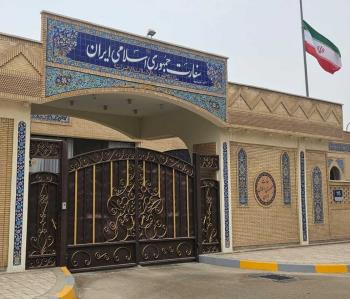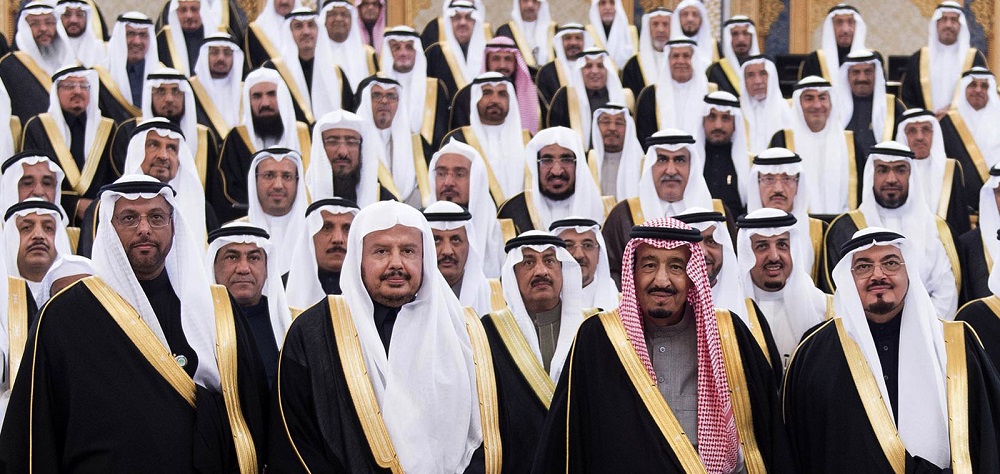Alwaght- On Saturday, the Saudi Crown Prince in separate decrees dismissed senior officials and introduced new figures to the posts. Significant posts like Anti-corruption Committee and the Supervisory Committee saw the change of their chiefs. The timing for these changes and introducing new figures, many agree, have goals with home, regional, and international aspects.
New changes
According to the royal decree, Bandar bin Ibrahim al-Khorayef was appointed a new minister of industry and Mineral Resources. One of the key posts is the Royal Court. Fahad bin Mohammed al-Isa, who was the chief of defense minister’s office, was picked for the Royal Court, replacing Khalid bin Abdulrahman al-Sa’a.
The Royal Court was founded in 1924 and since then has played as the executive wing of the monarchy and a link between the king and the state organizations. It is an affiliation of the circle of the royal advisors in such cases as home policy, religion, international affairs, national security, and royal ceremonies. This royal post is significant to a degree that bin Salman for a while served as head of it. Its new chief received a medal of honor from Yemen for his leading of the Saudi-Yemeni border demarcation talks in 2001.
In another post change, Awwad bin Saleh al-Awwad was appointed as the head of the Human Rights Commission. He formerly served as the minister of information and royal advisor. He also has a record for television and cultural production for the kingdom in Germany. Oghala bin Ali al-Oghala was appointed as the deputy head of the Royal Court.
The new decree brought structural changes to the supervisory and economic posts. The Riyadh Development Authority was renamed to Royal Commission for the City of Riyadh. The Supervisory Committee was renamed to General Audit Authority. The ministry of energy, industry, and mineral resources was dissolved giving place to two new ministries: Ministry of energy and ministry of industry and mineral resources. The decree also founded National Center for Artificial Intelligence as well as the National Library of Data Management, both of which are linked organizationally.
What’s behind new shakeup?
A couple of goals are driving new shakeup. As the anniversary of killing of the prominent Saudi writer Jamal Khashoggi at the Saudi consulate in Istanbul draws closer, which brought to the Arab kingdom the largest political crisis since 9/11 attacks, Riyadh predicts eruption of fresh international anger against the crown prince who was not dismissed from his position for the crime despite wide range of international pressure accusing him of directly ordering the journalist assassination. Appointment of such figure as bin Awwad with a record of cultural work abroad as the head of the national human rights body comes to embellish the Saudi image internationally and promote propaganda serving bin Salman’s agenda. Bin Salman worked hard to alleviate the pressures and restrictions including limitations on arms sales by Europe and the US that come in protest to the killing of his critic on October 2, 2018, in Turkey by a hit squad sent by the prince.
Last week, there were rumors about the death of Saud al-Qahtani, the former royal advisor. Mujtahid, a Saudi royal court whistleblower active on Twitter, posted that the rumor of Qahtani’s death was suggested by him because Jared Kushner, Trump’s son-in-law and advisor, called for his trial for his alleged support to the murder of Khashoggi. Qahtani is leading a media group with the mission to burnish the Saudi political face globally.
One of the key posts that found significance since the rise of bin Salman to power is the Anti-Corruption Committee. In the new decree, Khalid bin Abdul Muhsen al-Muheisen was dismissed as the chief of the committee and Mazen bin Ibrahim al-Kahmous was appointed as the new head. After last year’s massive purge of the princes who could gain power or even arrange a coup, Prince Mohammed is still worried about median executive officials with links to the opponent royals who carry the potentials to organize a power grab. The Anti-Corruption Committee days before the new decree had promised that after major corrupts the time will come for median ones in state positions.
From an economic aspect, Saudi Arabia is in a tough economic race with the United Arab Emirates and Qatar. Bin Salman unveiled the Saudi Vision 2030 in 2016 intending to reduce the reliance on the oil incomes and diversify the economy. Despite the efforts to rejuvenate the economy, the World Monetary Fund predicted that the Saudi growth drops to 1.9 by the end of 2019. The only promise for the Saudi economy in next year is oil prices increase. By separating the ministry of energy and industry, the administration tries to focus on oil by-products exports to push up the growth to 3 percent in the short run.
On the other hand, in the long run, it wants to separate the industry from the oil sector. Over the past few years, the Arab monarchy failed to make remarkable success in industry and mining. Khalid al-Faleh, the former minister of energy, pushed for the promotion of mining over the past years. Nearly half of the economic power was entrusted to him but he did not leave a record of success for bin Salman in the sale of 5 percent of shares of national oil giant Aramco. Aramco IPO listing was part of the Vision 2030. The plan turned into a dispute between Prince Mohammed and King Salman who interfered to cancel the listing.
Part of al-Khorayf’s activities has been in the private sector. He was also the chairman of Aramco. The de facto ruler hopes to push forward Aramco IPO listing with the help of al-Khorayf.
A large part of the changes comes to ease Prince Mohammed’s concerns. Later last year, he managed to appoint a confidante to him the head of Royal Guard. Now he has picked al-Isa, a figure close to him in the defense ministry, as the head of the Royal Court. Despite the efforts to put on show a positive image of him and the sham reforms, bin Salman cannot conceal from the international organizations and home opposition the repression of the political and rights activists as part of his struggle to tighten the grip on the power.



























